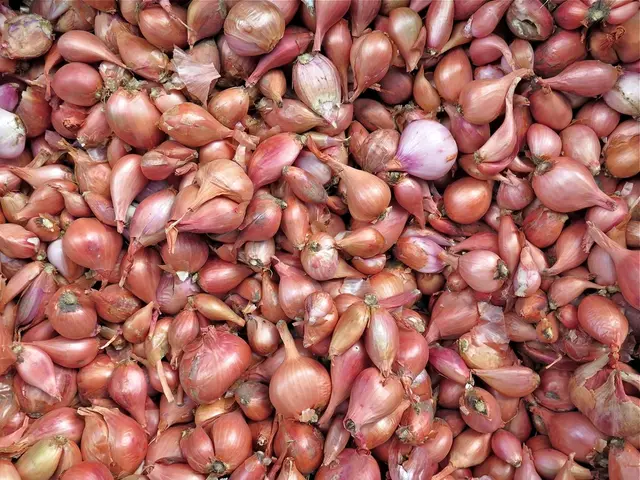EU Should Distribute Vaccines to Less Affluent Nations According to Development Minister
The European Union (EU) is leading the charge in global vaccine equity, committing significant resources to support developing countries in their fight against the pandemic. Federal Development Minister Gerd Müller (CSU) has been a vocal advocate for this cause, urging the EU to expedite legally binding agreements for the supply of vaccines to poorer nations [1].
At the recent Gavi 6.0 Pledging Summit co-hosted by the EU and the Gates Foundation, the EU reaffirmed its commitment by announcing an additional funding pledge of €260 million for 2026–2027. This funding will support Gavi's 2030 goal to protect 500 million children globally, strengthen immunisation systems, and boost health security against disease outbreaks [1][3]. The summit raised significant global contributions, exceeding $9 billion for the 2026–2030 period, aiming to avert 8-9 million deaths and protect millions of children from preventable diseases [3].
The EU's broader "Team Europe" approach, combining EU institutions and member state contributions, pledged over €2 billion targeting vaccine procurement and distribution efforts in developing countries. This includes support for African vaccine manufacturing capacity, reflecting a strategic push for vaccines not only to be delivered but increasingly produced in Africa [4]. The European Commission itself pledged €360 million at the summit, underscoring the EU's leadership in global vaccine efforts [4].
Beyond financial support, the EU actively partners with programmes like COVAX and collaborates with financial institutions to ensure vaccines reach low-income countries effectively. The EU also advocates for innovations and supply chain improvements to enhance equitable vaccine access and pandemic preparedness worldwide [1][3].
However, the pandemic is far from over, warns Müller. He cautions of the potential for many affected countries to slide into a debt crisis that could threaten the stability of entire regions. To mitigate this risk, Müller proposes that debt relief for the most affected countries should be contingent on transparency in public finances and a firm approach to corruption [2].
Müller has not expressed support for state interventions like taxes to finance the global vaccine platform Covax. Instead, he advocates for public pressure, insight, and responsibility to drive the necessary changes [2]. In a notable gesture, Müller has suggested that digital giants like Amazon, Google, Facebook, or Apple should financially equip the global vaccine platform Covax [2].
This commitment to global vaccine equity extends beyond the EU's borders. The G20 countries, the World Bank, and the International Monetary Fund have already taken positive steps, such as a debt moratorium until June [2]. As the world continues to grapple with the pandemic, the EU's ongoing and increasing pledges demonstrate a sustained and growing role in global vaccine efforts in developing countries [1][3][4].
References: [1] European Commission. (2025). Team Europe's contribution to the fight against COVID-19. Retrieved from https://ec.europa.eu/info/strategy/priorities-2019-2024/economy-sustainable-growth-jobs/team-europe-contribution-fight-against-covid-19_en [2] Müller, G. (2025). Speech at the Gavi 6.0 Pledging Summit. Retrieved from https://www.bmz.de/en/news/speech-at-the-gavi-6-0-pledging-summit/ [3] Gavi. (2025). Gavi 6.0 Pledging Summit: A historic moment for global health. Retrieved from https://www.gavi.org/news/press-releases/gavi-6-0-pledging-summit-historic-moment-global-health [4] European Commission. (2025). EU and Africa step up efforts to strengthen vaccine manufacturing in Africa. Retrieved from https://ec.europa.eu/commission/presscorner/detail/en/IP_25_2771
- The science of vaccine development is central to global vaccine equity, essential in the fight against the ongoing pandemic.
- The EU's commitment to the science workplace-wellness includes significant resources for supporting developing countries.
- Medical conditions, including chronic diseases like cancer, respiratory conditions, digestive health issues, and eye-health problems, are protected by the EU's commitment to health-and-wellness.
- Hearing health is also a part of the EU's broad approach to health and wellness, with a focus on protecting against preventable diseases.
- Fitness-and-exercise, a key aspect of overall health, is encouraged by the EU as a means to boost cardiovascular health and combat various medical conditions.
- Autoimmune disorders, neurological disorders, and environmental-science research are areas where the EU also invests to improve the health-and-wellness of its citizens.
- Climate change and its impact on health are recognized by the EU, which advocates for mitigation strategies in its industry policies.
- The manufacturing sector is urged to prioritize health-and-safety measures to prevent occupational hazards and minimize the spread of medical conditions.
- Mental-health, another critical aspect of health-and-wellness, is addressed through a variety of therapies-and-treatments, including counseling and medication.
- Nutrition plays a vital role in maintaining overall health, and the EU promotes a balanced diet for preventing and managing medical conditions.
- The finance sector is engaged in the EU's health-and-wellness efforts, with investments in Medicate, CBDC, and various health-related companies.
- The health sector is also affected by energy costs, and the EU encourages energy-efficiency measures in medicare facilities.
- Skin-conditions, a common medical issue, are treated through various therapeutic methods and products in the EU.
- Space-and-astronomy research, while not directly related to health-and-wellness, contributes to the advancement of technology and the understanding of the environment-science.
- Retail, interior-design, and cooking are industries that influence lifestyle choices, and the EU promotes a healthy lifestyle through education and regulations.
- Transportation, another sector that impacts lifestyle and health, is encouraged to adopt eco-friendly solutions to reduce pollution and promote outdoor-living.
- Fashion-and-beauty, food-and-drink, and personal-finance are domains where consumer choices influence health outcomes.
- The EU promotes sustainable-living and responsible investing in these sectors to encourage healthier choices for its citizens.
- Technology, including data-and-cloud-computing and artificial-intelligence, is harnessed to support various health-related initiatives.
- Cybersecurity is a critical aspect of protecting sensitive health information in the digital age.
- Lifestyle choices, from outdoor-living to embracing fashion-and-beauty trends, are influenced by popular culture and media.
- The EU encourages responsible representation of health-and-wellness in these areas to promote a healthy lifestyle.
- Home-and-garden, home-improvement, business, venture-capital, and private-equity are sectors where the EU invests to further its health-and-wellness agenda.
- Personal-finance management, wealth-management, and real-estate investments are critical aspects of financial well-being, and the EU promotes financial literacy for its citizens.
- In the context of pandemic preparedness, the EU advocates for data-driven decision-making and the use of artificial-intelligence in predicting and responding to health crises.
- Gardening, an activity that connects individuals with nature and promotes health, is encouraged as a part of sustainable-living initiatives.








